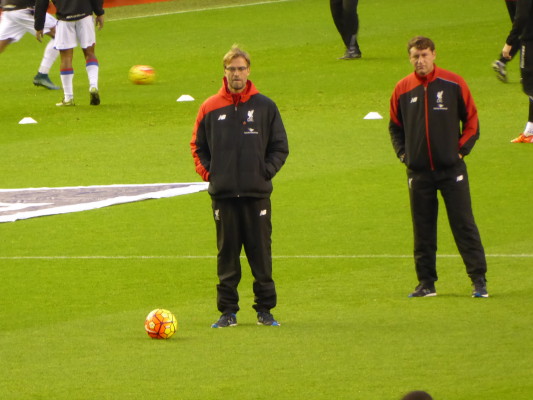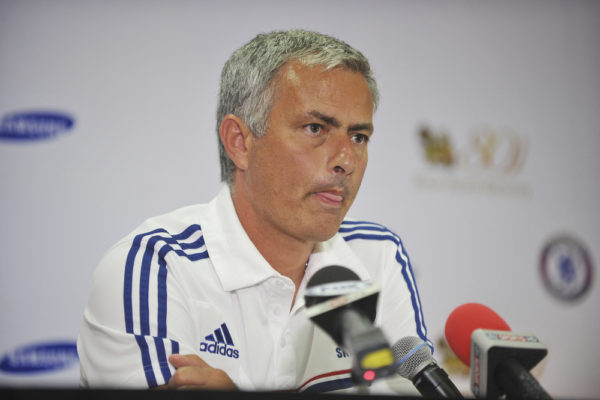This isn’t a political blog. Though I have never tried to make a secret of my political leanings within my writing, this isn’t a place for going off on one about things that are happening around the world. First and foremost it is a blog about Liverpool Football Club, with occasional references to non LFC matters should something catch my attention. I say all of that because I want to make clear from the outset that this piece isn’t intended to be a political commentary. It’s just that some things have happened this week that made me think about the connections between the coverage of ‘football’ over the years and the phenomenon that has become known as ‘Fake News’.
Warning!! Beware of fake news and don not fall for it!!https://t.co/8HJ0VZPftQ pic.twitter.com/ENcdqj0AYU
— radiodut.co.za (@RadioDUT) March 2, 2017
Before I get into why football is so closely connected to this phenomenon I should firstly explain exactly what I understand it to be. Fake news is, in essence, ‘news’ that is completely untrue. In recent times websites and social media have been used by nefarious parties to push stories that have no basis in fact but that are easily believed by those who want to fall for it. It’s been used to great affect by different political entities who know that their supporters will push out the ‘fake’ news story as it backs up their beliefs. What’s happened over the last couple of months is that the phrase ‘fake news’ has been used to describe any story that is in the media that a certain section of society don’t like. A poll that shows a political leader is unpopular is branded ‘fake news’ regardless of the facts.
Transfer Stories
So how is football linked to the idea of fake news, you may well be asking. It’s a fair question and we’ll start in the most obvious place of all – transfer rumours. Football fans are desperate for their club to be involved in the chase for the signatures of the best players around. Whether you support Liverpool, Manchester United, Everton or West Ham, you want to believe that the rumours in the newspapers about your club being linked with X, Y or Z player are true. Few football fans actually realise the huge number of variables involved in a transfer rumour, so they are happy to fall hook, line and sinker for any story appearing in a newspaper or online about their club ‘putting in a bid’ for a given player.
🔍 SCOUT REPORT | Liverpool midfield target Naby Keita has been putting in some impressive performances for RB Leipzig in the Bundesliga #LFC pic.twitter.com/qCWZTc0cvf
— LFC Transfer Room (@LFCTransferRoom) March 1, 2017
A quick search of the phrase ‘Transfer Rumours’ on Twitter will bring up hundreds of accounts with thousands of Tweets, all purporting to know what players various clubs are thinking of signing. If you know even the slightest thing about football and the transfer rumour mill then the phrase ‘ITK’ will be familiar to you. If you’ve never heard it before then I’ll explain; it stands for ‘In The Know’ and is shorthand for someone who claims that they have inside information at a football club. Perhaps they cut Jürgen Klopp’s wife’s hair or their brother is Ronald Koeman’s gardener. The link is always extremely tenuous, but such is the desperation of football fans to believe what they’ve got to say that that sort of thing is ignored in favour of an unlikely transfer story suddenly being true.

Klopp
When a transfer story rumour hits the newspaper of social media there is almost always a reason for it and it’s very rarely that it’s 100% true and accurate. Perhaps the player rumoured to be moving clubs is trying to convinced his current side to offer him a new contract, so their agent leaks something to the press to force the manager’s hand. Perhaps the club rumoured to be signing said player is also locked in contract negotiations with one of their own players who plays in the same position and they’re hoping that a rumour of a new signing to threaten his starting place will make him bring his wage demands down. More often than not the newspaper that started the rumour is just trying to fill column inches. They know Liverpool need a new left-back so they publish a story saying the Reds are about to sign one. Done.
Liverpool Handed Transfer Boost as Napoli Star’s Contract Talks Stall #LFC https://t.co/aPDmEGRIOv pic.twitter.com/j9BEslUQiJ
— LFC Report (@LFC_Fanly) March 2, 2017
When you stop and think logically about it there’s no reason on earth why a football club would tell everybody who they’re trying to sign. It doesn’t make any sense from a business point of view to let your rivals know who you’re thinking of going after. Even if you did want to information to reach the public then you’d turn to a journalist you trust, not the bloke who trims your hedges in the hope that he’s on Twitter. Back in 2005 Everton were looking to sign Momo Sissoko and David Moyes told the press about it. Rumour has it that Rafa Benitez wanted him but didn’t know he was for sale until he read Moyes’ comments so the Reds swooped in and beat their neighbours to his signature. If you want to get a rough idea of where the notion of ‘fake news’ came from then you’d do well to explore the rumour mill of football transfer stories.
Helping Out Mates
Manchester United have been on a good run of form over the last couple of months. Since the start of November they’ve lost just two matches in all competitions. As we headed into our game against Leicester City on Monday we had a chance to put ourselves four points clear of the Red Devils, though they’d have a game in hand on us. What José Mourinho could have done with was a story making it into the press that might have unsettled our players. Thankfully for the Portuguese manager he has a friend who is a journalist who is more than happy to print any nonsense story if it will do his mate a favour or cause one of his rivals a problem.
Liverpool players ‘depressed’ by Jurgen Klopp’s training method. #LFChttps://t.co/15oKE9aS42 pic.twitter.com/yVdEnrE9nX
— Duncan Castles (@DuncanCastles) February 27, 2017
Low and behold on Monday afternoon the Daily Record prints a story written by one Duncan Castles that suggests that Liverpool players are ‘depressed’ by having to train at night under Jürgen Klopp. The majority of the article was little more than a hatchet job on a manager who won two Bundesliga titles with Borussia Dortmund, despite being up against the financial behemoth that is Bayern Munich. Then towards the end of the article comes a quote from an anonymous source who suggests that “The lads are depressed with [training at night]”. This in spite of the fact that training at the same time as the match you’ll be playing next is quite a common practice within football.

Rnoid / shutterstock.com
Castles’ source may as well have been from a Manchester United fan club, such is the uselessness of it from a validity point of view. The entire article was designed to do nothing more than unsettle the Reds ahead of a big match and it won’t be surprising if we see more such articles coming out from Castles in the remaining couple of months before the season ends. Of course Mourinho himself is the master of such distraction tactics. Whether he’s managing Chelsea, Barcelona or Manchester United, if his team does poorly then you can bet your bottom dollar that the ‘Special One’ will say something outrageous to distract from the fact that his team has under-performed. See his ‘We didn’t lose’ response to when his side lost to Hull in the League Cup semi-final second-leg.
‘A Roy Hodgson Leicester side would play like last year’s title winning team.’
Danny Murphy on his former boss.
The right man for #LCFC? pic.twitter.com/PYn0BbPHi1
— BBC 5 live Sport (@5liveSport) March 1, 2017
Mourinho isn’t the only one to use friends or ex-colleagues to spread stories on his behalf. Liverpool fans will have been amused to see one of Roy Hodgson’s ex-players, Danny Murphy, suggest that the owl-faced moron would be a good manager for Leicester City. In fact, Murphy not only said that he’d be good for the foxes but even went as far as to say that he would be able to get them back to their title winning ways. In terms of ‘fake news’ this really is right up there. Across his entire career Roy Hodgson has completely and utterly failed to do win anything noteworthy with a top side, despite managing at Inter Milan (twice), Liverpool and England.

Vlad1988 / shutterstock.com
Hodgson’s supporters might point to his title winning experience with Halmstads BK, Malmö FF or Copenhagen, but even if we ignore how weak the Allsvenskan and Danish Superliga are there’s still something else that poo-poos the notion that he deserves huge credit for those experiences. The team that’s won the most Allsvenskan titles across its history is Malmö FF, whilst the record holders for the Danish Superliga are Copenhagen. Hardly setting the world alight. His career win ratio of 43.61 might be enough to keep Leicester in the league and even see them rise to respectable mid-table, but to suggest that he’s can get them back to their title winning ways is just plain wrong.
Conclusion
Where you’re looking at transfer rumours and where they come from, members of the press and ex-pundits helping out their mates or stats that are used to paint a picture that is disingenuous at best, there’s a real basis for believing that football was doing ‘fake news’ long before any politician started to talk about. The major difference is, of course, that in football it really is quite often just entirely made up, whilst in politics is nothing more than a distraction technique to make people question things they don’t want to agree with in the first place.
Or is all this just fake news? Who knows what’s what any more…



